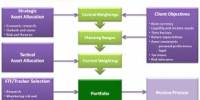Payroll is the total of all compensation a business must pay to its employees for a set period of time or on a given date. A company’s payroll is the list of employees of that company that are entitled to receive pay and the amounts that each should receive. It is usually managed by the accounting or human resources department of a business; small-business payrolls may be handled directly by the owner or an associate. Along with the amounts that each employee should receive for time worked or tasks performed, payroll can also refer to a company’s records of payments that were previously made to employees, including salaries and wages, bonuses, and withheld taxes, or the company’s department that calculates and pays out these amounts. One way that payroll can be handled is in-house. In the accounting world, it is also a term used for calculating and processing paychecks.
Payroll can also be outsourced to a full-service payroll processing company. It is the total of all compensation a business must pay to its employees for a set period of time or on a given date. When a company chooses to outsource its payroll, timesheets, wage calculations, creating paychecks, direct deposits, and tax payments can be handled all, or in part, by the payroll company. The payroll process can include tracking hours worked for employees, calculating pay, and distributing payments via direct deposit or check.
On the income statement, payroll expenses are part of labor costs. It’s the process the company goes through to pay the employees. They include employee salaries, employer payments for health insurance or similar benefits, payroll taxes paid by the employer, bonuses, commissions, and similar expenses. The financial records for employee wages and salaries, withholding, deductions, bonuses, pay for time not worked (holidays, vacations, sick time, etc.), and other items on employee paychecks. Payroll is a major expense for most companies and is the primary component of labor costs. Labor costs vary by industry, and comparing companies in different industries should be done with this in mind.
Payroll plays a major role in the internal operations of a business for several reasons. To make sure that your employees are happy and you are law compliant, you need to have a proper understanding of what payroll is and how to run payroll effectively. From the perspective of accounting, payroll and payroll taxes are subject to laws and regulations. Payroll in the U.S. is subject to federal, state, and local regulations including employee exemptions, record keeping, and tax requirements.
Payroll also plays a large role in the human resources point of view. It can also mean the record of the total earnings of all employees for a company in a fiscal year. Payroll errors, such as late or incorrect paychecks, are a sensitive topic that can cause tension between employees and their employers. A separate record must be kept for each employee, showing amounts paid for each pay period, for end-of-year reports. One requirement for maintaining high employee morale is that payroll must be paid accurately and in a timely manner because employees are very sensitive to any payroll errors. Records must also be kept of employee authorizations and any changes in pay.
















